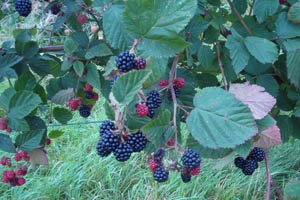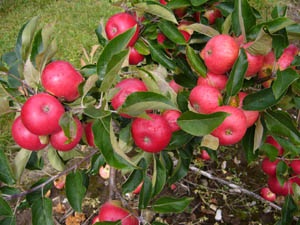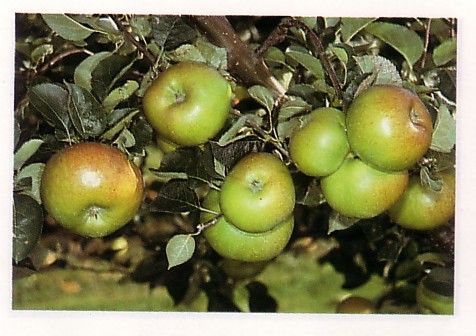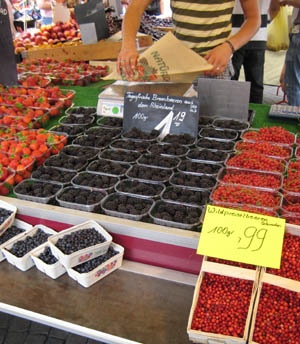Derek Jenning’s mention in his interesting article on the evolution of thornless blackberries brought back to mind my early cultivation of Thornfree and later of Chester Thornless. It was a great relief to harvest the crops on Thornfree because those vicious spines on thorny varieties always left me seeking the packet of plasters. Later, having read the praises in Dutch magazines of Chester Thornless (where it was regarded as slightly tender and hence the branches wrapped over winter in bracken), I chanced upon a plant for sale at Brogdale and have never regretted planting it.
It is hardly a variety for small gardens, producing shoots some 12ft. long, but is a heavy cropper of good-sized fruit, though not as large as some varieties now coming from New Zealand.
I find the fruits very sweet and juicy, though they must be left until they come easily off the calyx to attain that delicious sweetness and flavour that characterises it. They ripen normally from September to October, although this year our quirky climate has made then ready some 3 weeks earlier. Late ripening suits me perfectly, as I regard July and August as the raspberry season.
I have now had it some 10 years; I find it perfectly hardy and it keeps its vigour, though no doubt readers in Scotland would be wiser to plants varieties bred in that country. It produces the occasional seedling, which is interesting because so far they have all been thornless and produce fruit almost identical with their parent.
There is a good collection of Rubus species and varieties in a section of the Fruit Field at RHS Gardens, Wisley, near the Fruit Mount. Of course the staff do not appreciate you sampling them, but they are very helpful and will always assist you in your enquiries.
Howard Stringer
To read Derek Jenning’s article ‘Redesigning our Blackberries’ go to: http://www.fruitforum.net/redesigning-our-blackberries.htm




